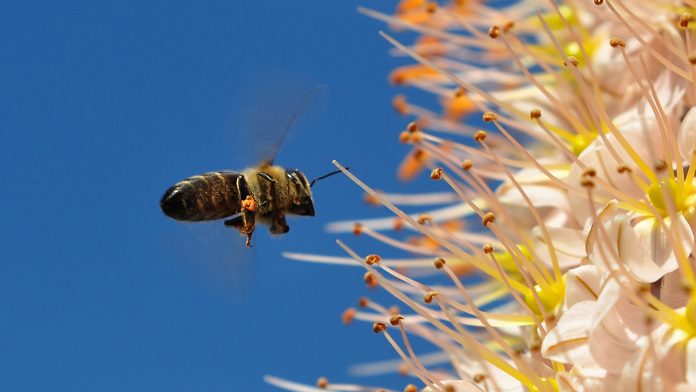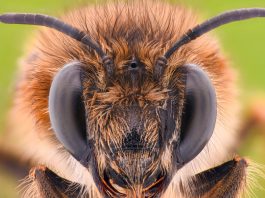Researchers from the Bangalore Life Science Cluster, India, have analysed the effects of pollution on one of India’s most important pollinators, the Giant Asian honeybee.
According to the World Health Organization (WHO), nine of the world’s ten most polluted cities are now in India. Scientists from the Bangalore Life Science Cluster, India, have revealed that air pollution in India could be devastating for the organisms which we rely on for our own survival. One of the organisms that the team analysed was the Giant Asian honeybee, an important contributor to India’s food security and ecosystems.
The Giant Asian honeybee produces over 80% of India’s honey and pollinates over 687 plants in Karnataka alone. 75% of our crop species rely to some extent on animals, mostly insects, for their production. India is the largest fruit and second largest vegetable producer in the world. Without insect pollinators like honeybees, the yearly mango export would lose over Rs. 65,000 Lakhs.
Led by Shannon Olsson at the National Centre for Biological Sciences, Bangalore, Geetha Thimmegowda and colleagues embarked on a four-year study of over 1,800 wild bees, publishing their findings in Proceedings of the National Academy of Sciences.
Both wild and lab studies show reduced bee health
Through a series of experiments led by honeybee expert Dr Axel Brockmann of NCBS and cardiovascular researcher Dr Dandipany Perunderai of the Institute for Stem Cell Science and Regenerative Medicine (inStem) and the Knight Cardiovascular Institute, the scientists found that Giant Asian honeybees from more polluted areas of Bangalore exhibited lower flower visitation rates than in less polluted areas. Bees from more polluted areas likewise showed significant differences in heart rhythmicity, blood cell count, and the expression of genes coding for stress, immunity, and metabolism.
Dr. Hema Somanathan, who studies bee behaviour and pollination ecology at the Behavioural and Evolutionary Ecology (BEE) Laboratory, Indian Institute of Science Education and Research, Thiruvananthapuram notes: “The study was done with wild bees naturally visiting flowers in Bangalore city and not in lab assays on reared honeybees kept in hive boxes that may already be stressed or immuno-compromised. Thus, in my opinion this study provides us with hard evidence that all is not well with our wild bees. Given the scale of landscape alteration and urbanisation in India, it is expected that these effects are widespread and likely to worsen with time.”
The team found that over 80% of the bees collected from the moderate and highly polluted sites died within 24 hours. These RSPM levels were similar to the “Interim Target II” guidelines proposed by the WHO. To this end, Arunabha Ghosh, founder and CEO of the Council on Energy, Environment and Water explained: “So far, much of the air quality studies in India have either considered sources of pollution or impact on human health, and to an extent on economic productivity. This study covers important new ground, by examining the impact of air pollution on pollinators, which would have serious implications for agricultural output in India. Such findings further underscore the need to raise India’s ambient air quality standards.”









